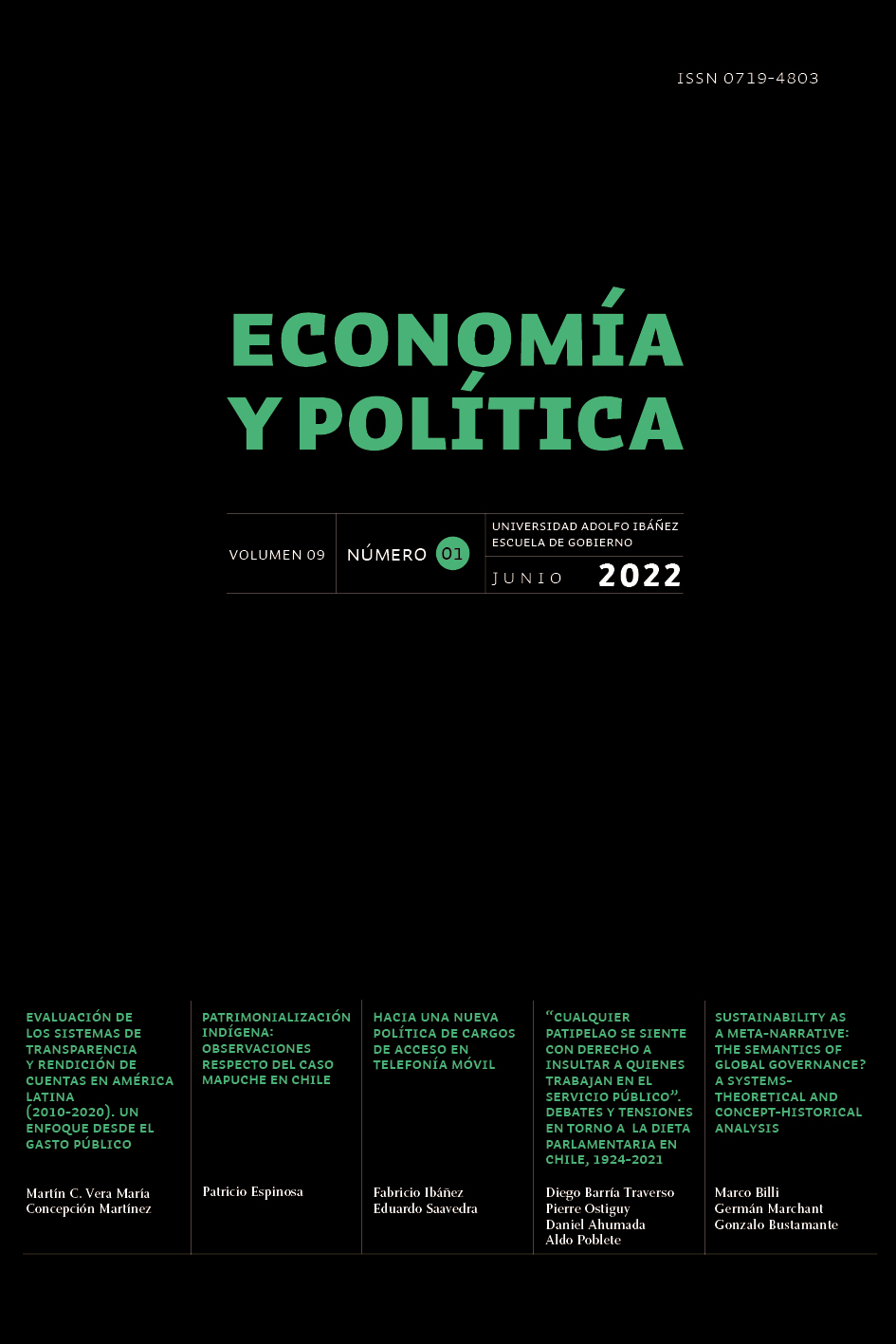Sustainability as a meta-narrative: the semantics of global governance? A systems-theoretical and concept-historical analysis
DOI:
https://doi.org/10.15691/07194714.2022.005Keywords:
sustainable development, conceptual history, performativity, governance, Social Systems TheoryAbstract
Sustainability has become a ubiquitous concept in modern society, but its inherent ambiguity makes it a source of enduring controversy. While the mainstream narrative has striven to make it the fundamental telos of all human activities, counter-narrative accounts have tended to treat it as an empty, rhetorical catchword potentially used to justify imperialism. Not siding with either of these interpretations, this manuscript delves into how sustainability is, becomes, and endures as a concept, in addition to the performative effects it engenders in modern society. In particular, we argue that sustainability has functioned as a semantic horizon and meta-narrative that allowed modern governance to emerge and become the new global rationality. The paper takes an analytical approach based on conceptual history and sociology, observing concepts as webs of meanings in relation to latent social structures. On this basis, the paper provides a conceptual-historical reconstruction of the emergence, core meaning and communicative performance of sustainability semantics, followed by a reflection on its relation to governance. The manuscript concludes, first, that sustainability emerges as a way to overcome the communications paradox involved in the reciprocal interdependence between society and its environment. Second, that the current communicational success of sustainability semantics derives from its ability to combine flexibility and coherence across the cognitive and normative dimensions. And third, that this ability makes sustainability a common horizon of possibility (of meaning), in turn granting legitimacy and coherence to an emerging governance regime coordinating global efforts at steering and governing the interaction between society and its environment.


